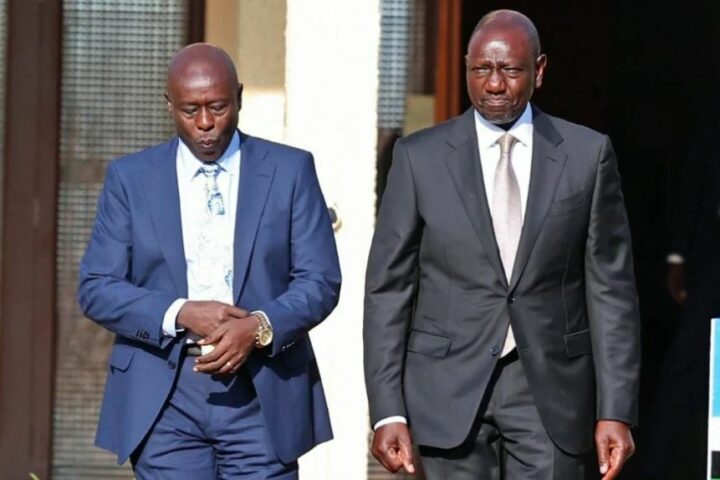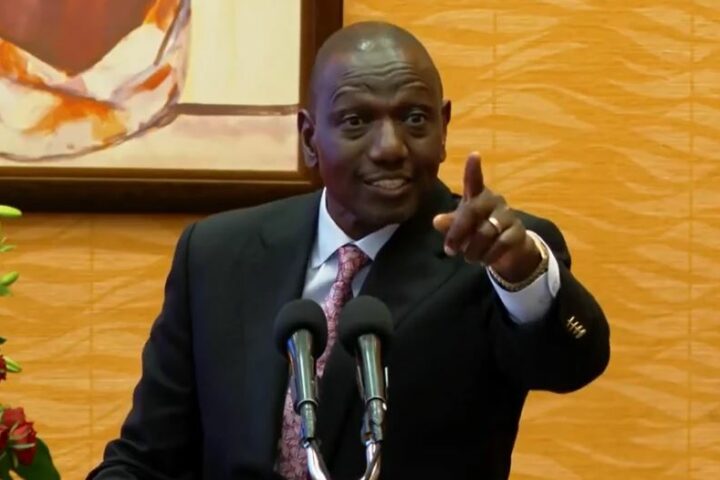
What is your assessment of the state of the economy this year as Covid-19 pandemic disruptions persist?
The economy is an integral part of every household. The state of the country’s economy is the collective sum of the state of the economy of individuals’ households. There are expectations. There are low moments and there are high moments. In 2020 we went into deep challenges because of Covid-19, floods and locusts.
But the worst is now behind us so far. This year, I am impressed with what I am seeing. Most sectors have really recovered including hospitality and manufacturing.
We have developed coping mechanisms because people have learnt to live with Cocvid-19 by taking all the necessary protocols. People can still work and deliver unlike 2020 when panic was too much. People are for instance consuming more fuel, food and beer and as a result, even our projection in terms of revenue has been surpassed for a number of months this year.
Looking at the economy this year compared to 2020 when the first case of Covid-19 was discovered in Kenya, what can you say you are proud of?
I am very satisfied with the government intervention because we were dealing with a situation nobody knew and had no script on how to deal with it. Now we have learnt how to protect lives without necessarily curtailing economic activities.
We have discovered virtual meetings and the benefits are huge. We used to travel to Washington every year for IMF and World Bank conferences on huge resources. Now in the comfort of our computers, we can conduct these meetings at extremely low costs.
Kenya’s foreign debt is mostly dollar-denominated and the shilling has been on a losing streak against the dollar. What kind of impact are you seeing on the debt repayment burden?
We are now slightly paying more than we had initially planned but we take care of such uncertainties without going into panic mode. If we had planned for 110 (against the dollar and the shilling is at about 113, this is not that much because it is already factored in the budget.
Over three years now into this job, would you say Yatani leads from the front or from the back?
How can I lead from the back? If so, then I am not a leader. I lead from the front and all the time I remain on top of my work. I mobilise my team, give them space to process and then we make decisions together.
I have worked in many areas but the quality of human resources at the Treasury is comparable to none. What has motivated me and kept me going and gave me an opportunity, even in difficult times when we are dealing with external stakeholders like Parliament, is my staff.
Is this to mean CS Yatani, who is in charge of money, also has his low moments at work?
Sometimes, we have serious issues with them (Parliament) or other stakeholders when they think they are in a better position to allocate resources than ourselves. There is a lot of pull and push in resource allocation. Sometimes we manage; sometimes we don’t but we live to fight for another day.
Sometimes MPs want to tilt projects and programmes to certain levels they think is good for them as individuals or regions without necessarily looking at what happens elsewhere. When we don’t get our way in Parliament, sometimes it can be very low moments.
You have definitely heard the public outcry about debts. What’s there to show for regions such as North Eastern?
In my own backyard, we have Isiolo to Moyale as a tarmacked road and now Isiolo to Mandera is coming up. The President (Uhuru Kenyatta) is going to launch it in January.
We have a road under construction from Lamu to Garissa and the award of the road from Garissa to Isiolo has also been given. You can imagine the opening up of all parts of this country.
What impresses me is the opening up of the country. There are people who complain about loans here and there but we are going to pay those loans. Most of them are concessionally acquired and will be repaid within the required times.
The season of politics is here and it will mean change of President and definitely change of Cabinet. Is Yatani going to rejoin politics?
I am very busy and very focused on serving the President and the country at a critical time in a critical office and I don’t want to get confused in terms of what I want to do.
I am going to be in this office but even this office or any part of the Executive is part of a political process.
We are going on a journey where we are going to deal with a transition and we hope this country will be handed over to somebody who will meet our expectations as Kenyans.
You speak like a politician here—
I am going to work as required and the decision I take at the right time will be determined not only by myself but as a product of consultation with my boss. I know the level I left that county (Marsabit County) where he served as first governor from 2013 to 2017) at and how much it has degenerated.
We must cause a change because the community there deserves quality service and good leadership. But that will be at its own time. It can be me or somebody else but we are going to deal with it.
Do you see the next General Election as a potential headwind to the economic growth prospects?
I don’t think so. As a country we have learnt from the past. I think 2007 was a turning point for this country.
I feel confident about the next election because we have a commander in chief who is not running for political office and will ensure his administration remains focused on service delivery including security.
We have had engagement with development partners and there is a lot of optimism that there is going to be a transition that will not affect the economy. In the past, there has been postponement of major investment decisions until after elections because of fear but this time, I don’t see much anxiety. We will have a change of guard without economic disruption.








